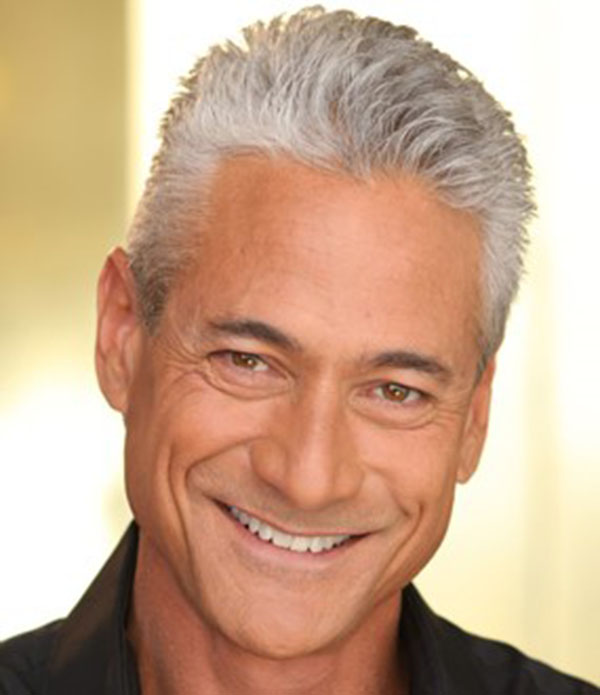LONDON, (Thomson Reuters Foundation) – He is regularly dubbed the world’s best ever diver, but Olympic gold medallist Greg Louganis still questions whether he missed out on lucrative sponsorship deals and top TV jobs because he was gay and HIV+.
The diver turned LGBT+ activist, actor and author found out he was HIV positive six months before the 1988 Seoul Olympics. He thought his life was over – instead Louganis went on to become the only man in Olympic history to win both platform and springboard events at consecutive games.
“When I was first diagnosed, (I thought) ‘is this real? Is this really happening to me?'” Louganis said. “But (HIV) is just a part of me. It’s not my identity.”
Historic wins aside, apart from one major sponsorship deal with Speedo, the big money somehow eluded him.
The Californian began to question why he was left out of Olympic commentary gigs or the sort of commercial deals routinely awarded to fellow Olympians.
“I’ve heard rumblings that certain things I didn’t get because it was rumoured I was gay,” he told the Thomson Reuters Foundation in a video call from his home in southern California.
“One of the responses was that, ‘Well you wanted to pursue your acting thing.’ Well, that shouldn’t inhibit me being able to do expert commentary. It’s a sport that I know.”
And it is one he knows well.
In addition to his double Olympic wins at the 1984 Los Angeles and 1988 Seoul Olympic Games, Louganis, now 60, won five gold World Championship medals and six golds at the Pan American Games between 1978 and 1987.
He secured an initial silver medal at the 1976 Montreal Olympics – long before his private life became public property.
“I do know for a fact that when I was being looked at early on (for sponsorship deals or commentary jobs) that somebody made it known about my HIV status,” said Louganis.
“That was in my early ’90s, so I would have been a ‘liability’,” he added.
Louganis grew up in a small suburb of San Diego, the adopted son of Greek and Scottish-Irish parents. His Samoan heritage meant he stood out at school and for all the wrong reasons.
“My skin was darker than most of the other kids I went to school with and it was challenging,” Louganis said with evident understatement.
Initially signed up to dance and acrobatics lessons at the age of 18 months – “awfully young,” Louganis now laughs – then gymnastics at seven before trying diving when he turned eight.
He had found his metier – and an escape from reality.
As a frequent victim of racism, Louganis said sport became a way to dodge the bullies. “We’d have recitals and have to prepare, so it took me out of school,” Louganis said.
He joined the U.S. Olympic team aged just 16, sharing memories now of post-tournament water-bomb fights with the Soviets at the 1976 Montreal Games.
“The things that teenagers do,” Louganis said, laughing at the distant Cold War memory.
But despite his unbeaten diving record, Louganis is probably best known for a notorious moment at the 1988 games when, in preliminary trials, he hit his head on the springboard, blood seeping into the pool live on television.
“I heard this big hollow thud and I was like, ‘What was that?’ And then I’m crashing to the water,” Louganis said.
“Once I figured it out… I was embarrassed. I’m supposed to be a pretty good diver.”
His story took a darker turn in the mid-1990s, when Louganis came out as HIV+, facing questions about whether he was right to have kept his status under wraps in Seoul.
“The chances of transmitting (the virus in water) were so slight,” he said, adding he had confronted the question of his responsibilities at the time.
He is now silver-haired yet Louganis had not expected to make it even to 34, given an HIV diagnosis in the 1990s was tantamount to a death sentence.
“I thought I was saying goodbye to everybody,” Louganis said of his 33rd birthday party.
Working on a musical about his life and a biopic, he is also an activist keen to dispel the stigma experienced by many of the estimated 38 million people worldwide living with HIV.
“I have a lot to offer,” said Louganis, part of a recent panel organised by U.S. social network SohoMuse on coming out.
“At times I still feel like a kid inside and I think I always will,” he said. “But you know what? I have some life experience that is really quite interesting that I can share.” (Thomson Reuters Foundation, the charitable arm of Thomson Reuters, that covers the lives of people around the world who struggle to live freely or fairly. Visit http://news.trust.org)

